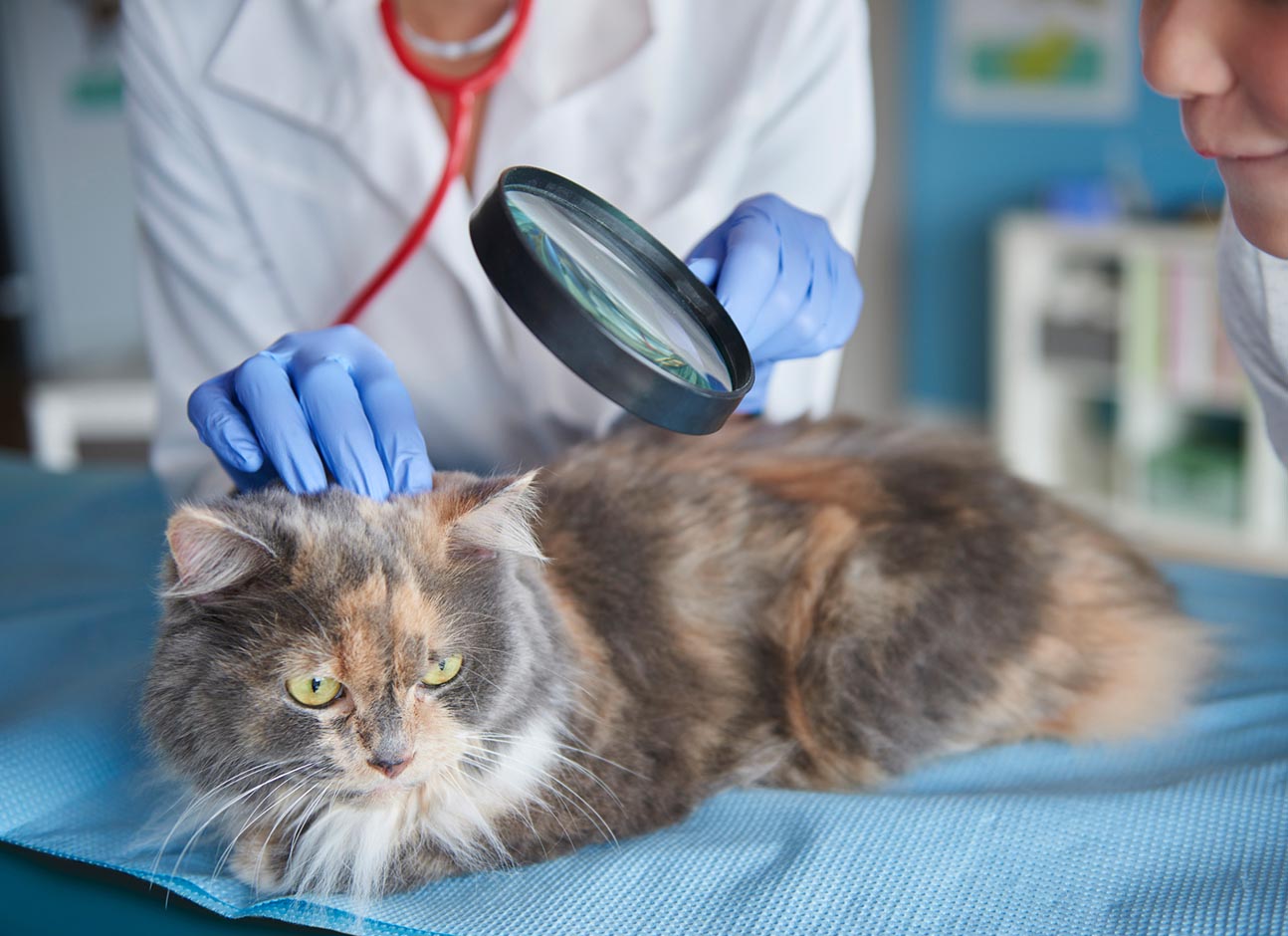Fleas are blood-sucking, wingless parasites that can infest cats. Their narrow, smooth bodies allow them to move efficiently and stay within a cat’s fur. Fleas can be found in the environment, on bedding, and even on other animals.
Infection can occur throughout the year and in various ways. It is important to note that even indoor cats can be affected by fleas. Methods of infection include:
Contact with an infested animal
Exposure to rodents (more common in rural areas)
Transmission from humans via clothing or shoes
Exposure to infested outdoor areas
Transmission from mother to offspring
Shared grooming items from unsanitary pet establishments
Dangers of Fleas:
Fleas may seem harmless due to their small size, but they can cause significant health issues for cats, such as:
Anemia: A large number of fleas can cause blood loss, leading to exhaustion, which is especially dangerous for young kittens.
Sleep deprivation and stress: Fleas can cause round-the-clock discomfort, affecting a cat’s mental state.
Damaged fur from constant scratching
Allergic reactions, dermatitis, and secondary infections
Infection with worms, as fleas can carry worm eggs
Symptoms of Flea Infestation:
Clear symptoms of flea infestation include:
Constant scratching or licking due to painful flea bites
Restlessness and nervousness caused by continuous biting
Visible bite marks and self-inflicted scratches
Loss of appetite due to stress and toxic substances from flea saliva
Allergic reactions
Bald spots and coat/skin issues
It can be challenging to detect fleas in the early stages of infestation, but as the problem worsens, fleas and their waste products become more visible.
Eliminating Fleas:
To eliminate fleas, follow these steps:
Choose an appropriate flea treatment product.
Apply the treatment as directed by the product instructions.
Disinfect your pet’s living areas to prevent re-infestation.
Treat any wounds, itching, or other skin issues.
Common Flea Treatments:
Various flea treatments are available at veterinary clinics and pet stores, including:
Flea drops: Effective, safe for cats, and easy to use
Flea collars: Useful for prevention but do not kill fleas
Flea shampoos: Safe, non-toxic, and suitable for pregnant cats and kittens
Flea sprays: Effective and easy to use; avoid contact with eyes, mouth, and nose
Injections: Highly effective but toxic; prescribed by veterinarians for severe infestations
Oral medications: General treatment method, but can be difficult to administer
Flea Treatment for Pregnant Cats:
If a pregnant cat has fleas, consult a veterinarian for a treatment plan that will not harm the cat or its offspring.
The Risk of Cat Fleas for Humans:
Fleas will not live on humans but can transmit diseases through bites, such as hepatitis, encephalitis, and worms. Flea bites on humans often result in allergies, itching, and rashes.
Prevention Methods:
To prevent flea infestations, regularly treat your cat with flea prevention products, even if they are indoor-only. Additionally, clean your home and items in contact with your cat. Avoid contact with stray cats or those known to have fleas.
